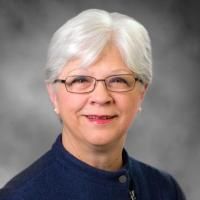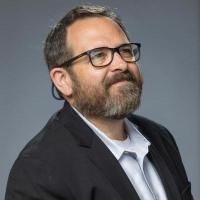Randomized controlled trial of the "WISER" intervention to reduce healthcare worker burnout.
Date
2021-08-09
Journal Title
Journal ISSN
Volume Title
Repository Usage Stats
views
downloads
Citation Stats
Abstract
Objective
Test web-based implementation for the science of enhancing resilience (WISER) intervention efficacy in reducing healthcare worker (HCW) burnout.Design
RCT using two cohorts of HCWs of four NICUs each, to improve HCW well-being (primary outcome: burnout). Cohort 1 received WISER while Cohort 2 acted as a waitlist control.Results
Cohorts were similar, mostly female (83%) and nurses (62%). In Cohorts 1 and 2 respectively, 182 and 299 initiated WISER, 100 and 176 completed 1-month follow-up, and 78 and 146 completed 6-month follow-up. Relative to control, WISER decreased burnout (-5.27 (95% CI: -10.44, -0.10), p = 0.046). Combined adjusted cohort results at 1-month showed that the percentage of HCWs reporting concerning outcomes was significantly decreased for burnout (-6.3% (95%CI: -11.6%, -1.0%); p = 0.008), and secondary outcomes depression (-5.2% (95%CI: -10.8, -0.4); p = 0.022) and work-life integration (-11.8% (95%CI: -17.9, -6.1); p < 0.001). Improvements endured at 6 months.Conclusion
WISER appears to durably improve HCW well-being.Clinical trials number
NCT02603133; https://clinicaltrials.gov/ct2/show/NCT02603133.Type
Department
Description
Provenance
Subjects
Citation
Permalink
Published Version (Please cite this version)
Publication Info
Profit, Jochen, Kathryn C Adair, Xin Cui, Briana Mitchell, Debra Brandon, Daniel S Tawfik, Joseph Rigdon, Jeffrey B Gould, et al. (2021). Randomized controlled trial of the "WISER" intervention to reduce healthcare worker burnout. Journal of perinatology : official journal of the California Perinatal Association. 10.1038/s41372-021-01100-y Retrieved from https://hdl.handle.net/10161/23669.
This is constructed from limited available data and may be imprecise. To cite this article, please review & use the official citation provided by the journal.
Collections
Scholars@Duke

Debra Huffman Brandon
Debra Brandon, Associate Professor joined the faculty of the Duke University School of Nursing in 1999. She was Director of the PhD Program in Nursing from from July of 2011 until January 30th of 2018. She also practiced as a Neonatal Clinical Nurse Specialist in the Intensive Care Nursery of Duke University Medical Center from 1993 to 2012. Dr. Brandon is an active member of the National Association of Neonatal Nurses (NANN), the International Society for Infant Studies ISIS), and is a Co-editor in Chief for the journal Advances in Neonatal Care. Dr. Brandon’s research focuses on understanding the impact of the environment of care on the health and development of high-risk infants and young children with an overall goal of implementing interventions to improve the short- and long-term outcomes of both the infants and their families.

John Bryan Sexton
Bryan is the Director of the Duke Center for the Advancement of Well-being Science. He leads the efforts around research, training and coaching, guiding quality improvement and well-being activities.
A psychologist member of the Department of Psychiatry, Bryan is a psychometrician and spends time developing methods of assessing and improving safety culture, teamwork, leadership and especially work-force well-being. Currently, he is disseminating the results from a successful NIH R01 grant that used RCTs to show that we can cause enduring improvements in healthcare worker well-being.
A perpetually recovering father of four, he enjoys running, using hand tools on wood, books on Audible, and hearing particularly good explanations of extremely complicated topics.
Unless otherwise indicated, scholarly articles published by Duke faculty members are made available here with a CC-BY-NC (Creative Commons Attribution Non-Commercial) license, as enabled by the Duke Open Access Policy. If you wish to use the materials in ways not already permitted under CC-BY-NC, please consult the copyright owner. Other materials are made available here through the author’s grant of a non-exclusive license to make their work openly accessible.
